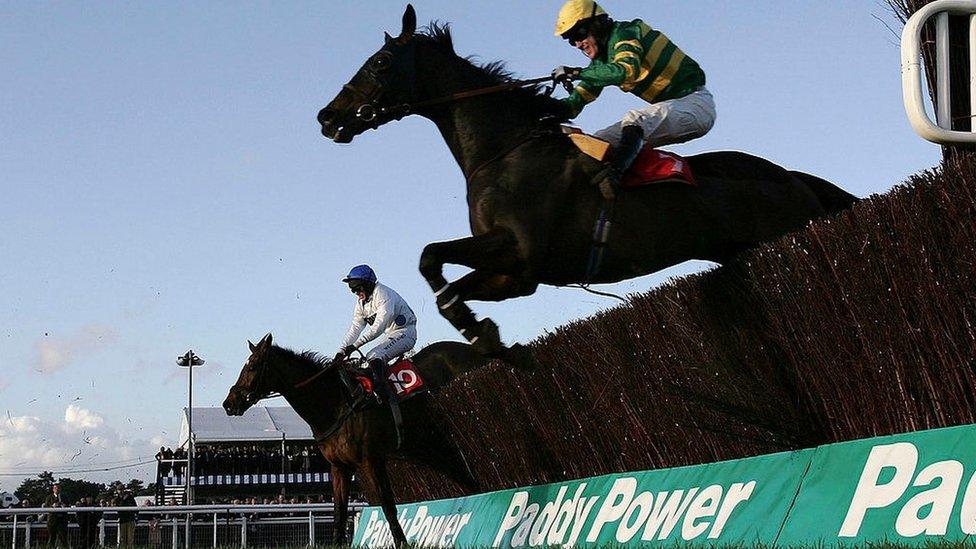UK betting firms gamble on US after sports wager ruling
- Published
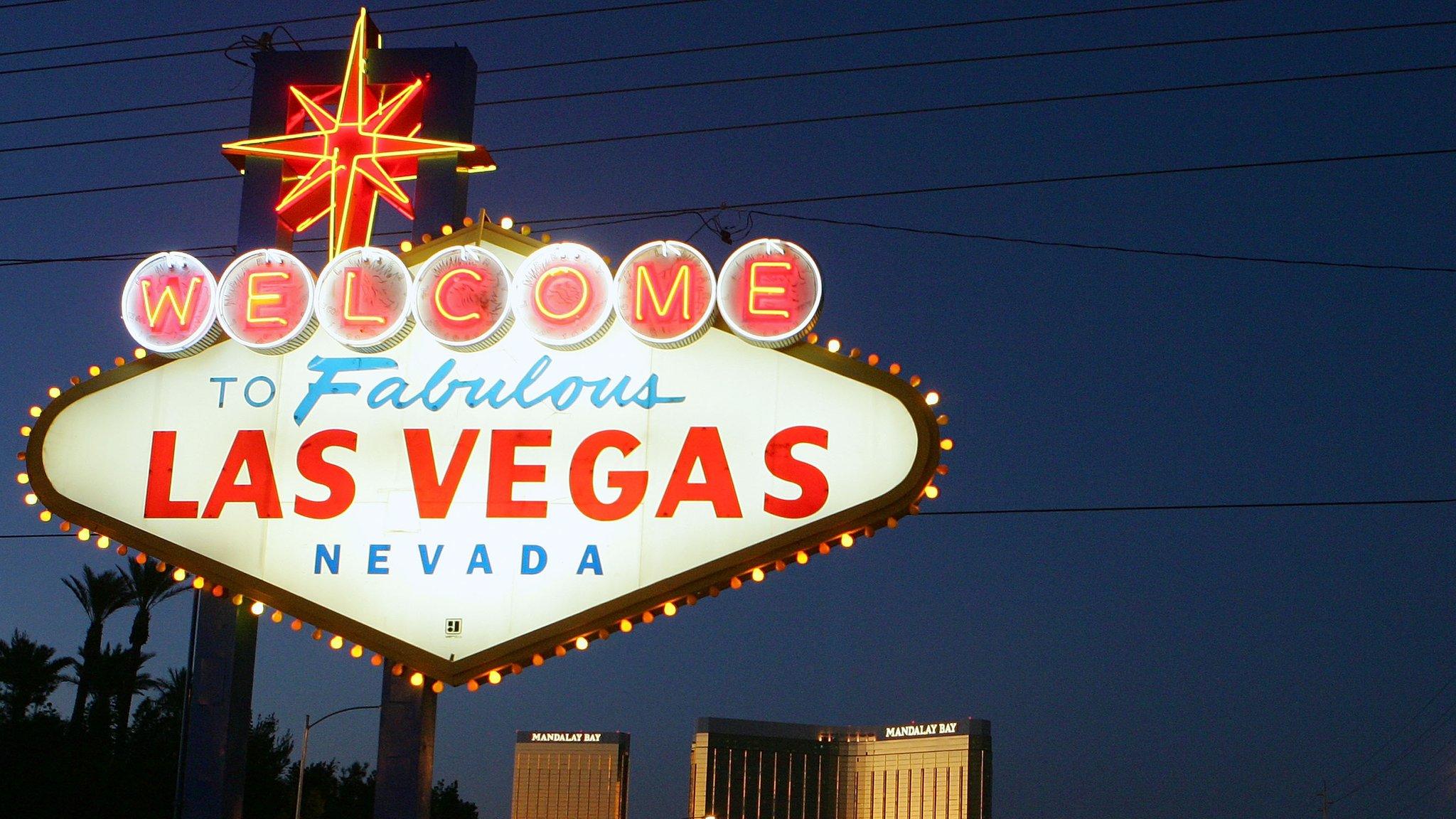
Can UK gaming firms make it in America?
It's high stakes for UK firms as sports betting starts to spread in America.
From Tuesday, new rules on betting came into effect in Delaware, a tiny east coast state about two hours from Washington.
Neighbouring New Jersey could start accepting sports bets as early as Friday.
The changes are the first in what could become a wave of legalisation after the Supreme Court last month cleared the way for states to allow sports betting.
The industry sees a "once in a generation" opportunity to establish a new market in sports-mad America, said Dublin-based financial analyst David Jennings, who heads leisure research at Davy.
For UK firms, which are grappling with consolidation, increased online competition and tougher rules from UK regulators, the timing is particularly opportune.
But the industry says counting on the US remains a risky bet, as UK companies face complicated state-by-state regulation and competition from entrenched local interests.
"It's something that we're really focusing on, but equally we don't want to overhype it," said James Midmer, spokesman at Paddy Power Betfair, which recently purchased the US fantasy sports site FanDuel.
'Take time'
The US accounted for about 23% of the world's $244bn (£182bn) in gaming revenue last year, according to a report by Technavio, external published in January.
Firms are hoping to tap into more of that activity after last month's decision, which struck down a 1992 federal law that barred states outside of Nevada and a few others from authorising sports betting.
The ruling found the law was an over-reach of federal power. But the court it did not actually legalise sports betting, leaving that question to local lawmakers.
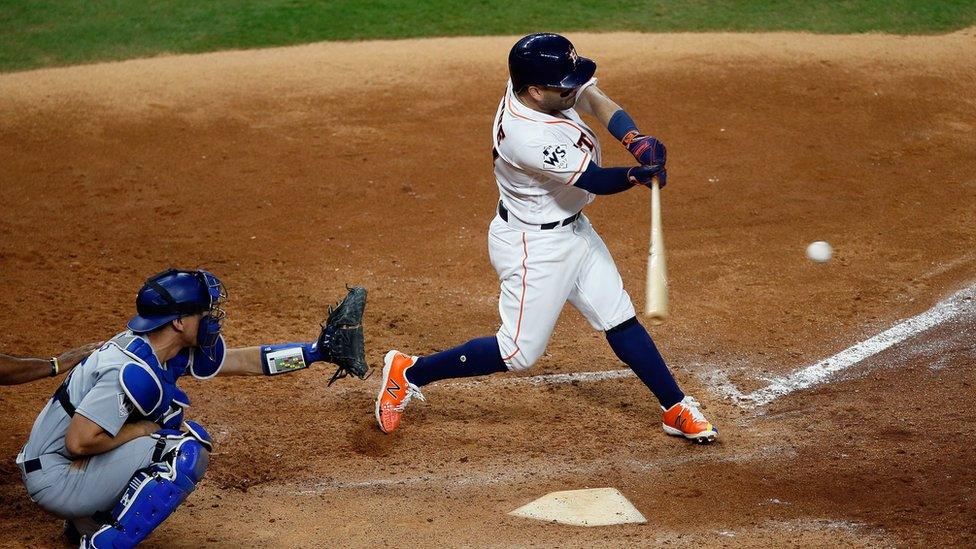
The Los Angeles Dodgers play the Houston Astros in Houston last October
That is expected to lead to significant variation in how firms get licensed, where sports betting can occur, and which events are open to speculation - with big implications for the size of the market.
Potential revenue ranges from $4.2bn to almost $20bn annually depending on factors like how many states move to legalise, Oxford Economics estimated in a 2017 study for the American Gaming Association.
"There was a lot of 'this is going to be huge'", said Will Hawkley, London-based head of leisure for consultants KPMG.
Now, he said: "I think most people... are looking at this as, 'it's an opportunity but it's not going to be $20bn and it's going to be state by state and it's going to take time'."
'Remains to be seen"
Chris Grove, managing director at Eilers & Krejcik Gaming, predicts that 32 states will legalise sports betting in some form by 2023, creating a market with about $6bn in annual revenue.
But bookmakers face a far different landscape in America than they do in the UK, where betting shops are a frequent sight.
US laws limited gambling largely to Native American lands and Nevada's Las Vegas strip until relatively recently.
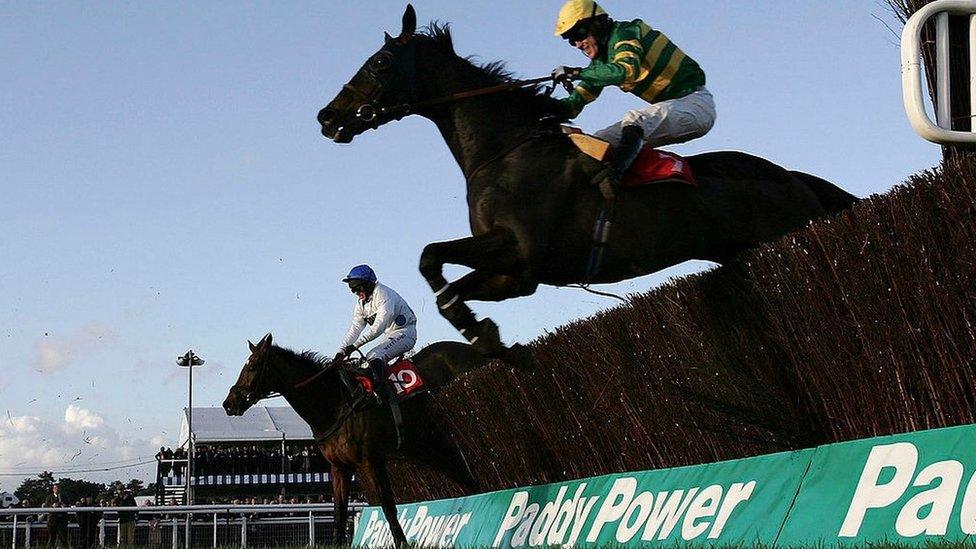
A Supreme Court ruling has created a "once in a generation" opportunity for sports betting firms
In the popular imagination, sports betting has long been linked to a 1919 baseball World Series match-fixing scandal.
States have also been slow to legalise many forms of online gambling, despite a 2011 Justice Department opinion that appeared to remove obstacles.
While sports betting is typically viewed in its own category, "it clearly remains to be seen whether it gets the kind of momentum people think it will," said Keith Miller, law professor at Drake University and co-author of a book about sports betting regulation.
David Carruthers is the former chief executive of BetonSports, who was arrested in the US in 2006 for running an offshore online sportsbook and served prison time.
Now a consultant, he says UK firms should approach the market carefully, choosing partners with caution and avoiding missteps that could lead to regulator backlash.
"This is an opportunity for the American sports bettor... I'm not sure whether it is an opportunity for business," he says. "It really is dependent on the outcome of [state] legislation and how the business operators pursue the opportunity."
'It will be partnerships'
As legalisation starts, sports betting firms are lobbying to fend off high tax rates, as well as requests by US sports leagues, which want to collect a percentage of revenue as an "integrity fee".
International companies face the added challenge of a powerful existing gaming industry, with casino operators, state-run lotteries and Native American tribes that are seeking to defend their turf.
Analysts say UK firms will need to strike partnerships, offering their expertise and technology in order to make inroads.
They point to SBTech's recent announcement that it is providing technology for Kentucky Derby operator Churchill Downs as an example of the kind of deals likely to materialise.
"It will be a win-win for everyone, but it will be partnerships and it will be driven by technology," Mr Hawkley said.
'It will just depend'
Joe Asher, chief executive at William Hill US, is clear-eyed about the realities.
The company has been investing in the US market since 2011, when it purchased three US firms to establish a presence in Nevada.
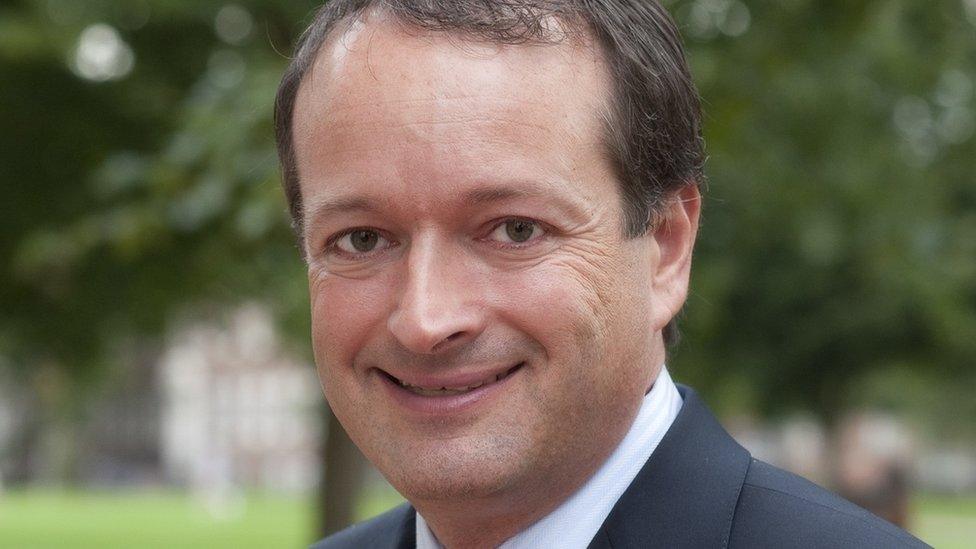
Joe Asher is head of William Hill US
William Hill now employs about 450 people in the US and has announced partnerships with casinos in Iowa and New Jersey.
It works as risk manager for the Delaware Lottery and has invested millions alongside a local developer in a New Jersey horse racing track.
Mr Asher said William Hill has become a household name in Nevada but that's not necessarily the goal everywhere.
"We certainly intend to have a very significant brand presence in New Jersey," he said. "In other states, it will just depend on regulation and potentially who our local partner is."
"The US is going to be the biggest sports betting market in the world," he added. "Obviously that's not going to happen on day one."
- Published14 May 2018
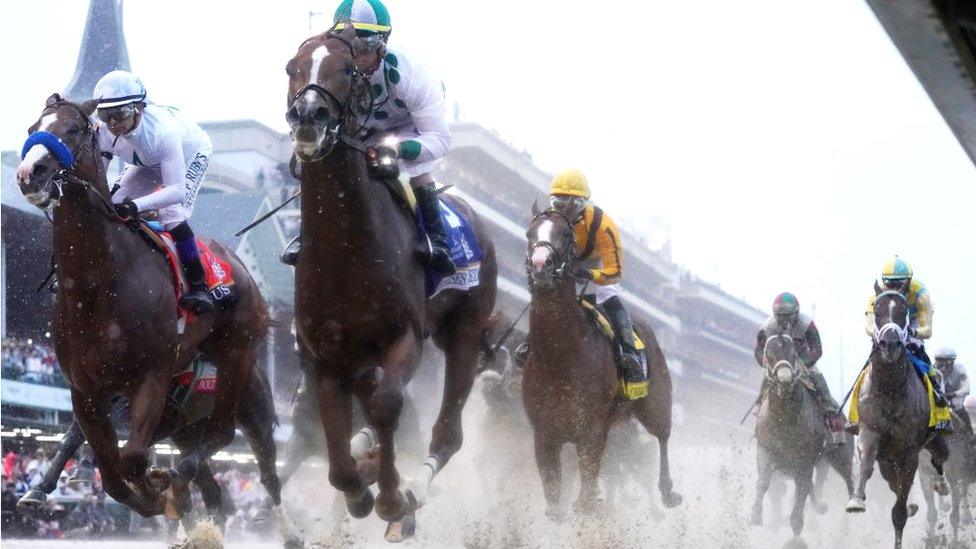
- Published23 May 2018
